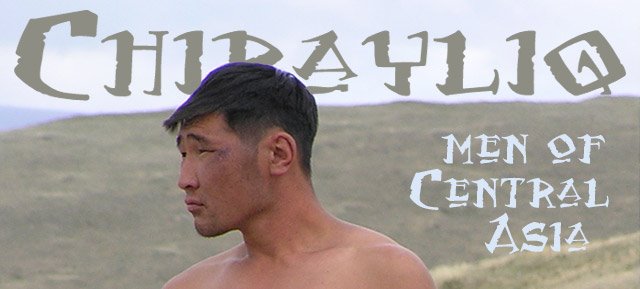 How could we miss this guy? I once photographed an entire Tatarstan ASSR history book in search of Chirayliq candidates, even before this blog was created... and he wasn't there.
How could we miss this guy? I once photographed an entire Tatarstan ASSR history book in search of Chirayliq candidates, even before this blog was created... and he wasn't there.It's all Stalin's fault, of course. In this interesting speech from 1923 (source in German), Stalin accuses officials of the "national republics and areas" (mostly Turkestan) of both rightist and leftist leanings, the former being too nationalist, the latter too internationalist - implying that only certain great leaders are able to find the golden middle road, and everybody else better shut up.
 Tatar Bolshevik Mirsäyet Xäydärğäli ulı Soltanğäliev (1892-1940?), aka Mirza Sultan-Galiev, was purged from the party in 1923 and finally executed in 1939 or 1940 for "nationalist tendencies". Today, Soltanğäliev's memory lives both in Tatarstan and Turkey, and some rare European socialists consider him a "forgotten precursor". Why this surge of attention? Well, I suppose it is his particular mix of socialism, Islam and national solidarity, sometimes called sultangalievism, which grew in the fertile soil of the jadidist movement of the 1800's in Bashkiria and Tataria (his parents were teachers). Already jadidism had sought to combine Islam, modernization and nationalization ("national revival") among the Muslim minorities of the Russian empire. Throughout most of Russia's history, religion, not ethnicity, was the defining category for most of the population. By promoting literacy, modern communications, and education, the jadidists wanted to reform Islam from the roots, while staying faithful to what they defined as core values of the Tatars and other Turkic peoples in Central Asia: freedom, social equality, diversity. Oppressed by the Tsarist regime, they turned to the Bolsheviks for support.
Tatar Bolshevik Mirsäyet Xäydärğäli ulı Soltanğäliev (1892-1940?), aka Mirza Sultan-Galiev, was purged from the party in 1923 and finally executed in 1939 or 1940 for "nationalist tendencies". Today, Soltanğäliev's memory lives both in Tatarstan and Turkey, and some rare European socialists consider him a "forgotten precursor". Why this surge of attention? Well, I suppose it is his particular mix of socialism, Islam and national solidarity, sometimes called sultangalievism, which grew in the fertile soil of the jadidist movement of the 1800's in Bashkiria and Tataria (his parents were teachers). Already jadidism had sought to combine Islam, modernization and nationalization ("national revival") among the Muslim minorities of the Russian empire. Throughout most of Russia's history, religion, not ethnicity, was the defining category for most of the population. By promoting literacy, modern communications, and education, the jadidists wanted to reform Islam from the roots, while staying faithful to what they defined as core values of the Tatars and other Turkic peoples in Central Asia: freedom, social equality, diversity. Oppressed by the Tsarist regime, they turned to the Bolsheviks for support.Soltanğäliev joined the Bolshevik Party in November 1917. At that time, he became a protégé of Stalin, as president of the Central Muslim Commissariat. He founded a Muslim Communist Party, and raised a military force of Tatars and other Muslims, which played a key role in the battles with Kolchak at the Volga. Interestingly, in the face of Russian opposition, he made public plans to create a Tatar-Bashkir Republic along the Middle Volga and the South Urals, with five to six million inhabitants. His view of Bolshevism was a worldwide anti-colonial struggle. (Source: Maxime Rodinson)
For Soltanğäliev, there was no contradiction in working for the advancement of Tatar and Bashkir culture while translating the works of Tolstoy into these languages and collaborating with people of other ethnicities for world revolution. It seems ironic that Dzhugashvili the Georgian, in the name of Great Russian supremacy, would crush Soltanğäliev the Tatar.





7 comments:
Wow, this is really interesting!
I guess priest school alumni Stalin didn't appreciate the Islamic aspects of his ideas ...?
Stalin probably didn't appreciate any rival alpha males around him...
Sultan Galiyev created the first challenge towards Soviet model of Socialism by combining Islam and Nationalism with it. More over, his stress on PROLETARIAN nature of East vis a vis the dominant West is remarkable- can he be called a precursur of Saidian model of orientalism from this perspective?
But how is it proved that Galiyev was a Jadid himself?
Is there any writing of Galiyev available in any website?
Dear Anonymous,
A superficial Google search didn't wield any actual writings by him online. I encourage you to do a deeper Google search by yourself. Also, I'd suggest consulting university library databases, or institutes of slavonic or east european studies at universities. For example, this Russian article cites a collection of articles printed for some course at Oxford University in the 1980's.
Well, I didn't state that he was a Jadidi himself, but I implied that it was highly likely that he was influenced by this tradition. His parents would have been familiar with it, since they were teachers. It's a bit unclear in the article, true.
My point was basically that he wasn't a "lone wolf", although he has been forgotten occasionally.
There's a Facebook group about Soltanğäliev, if that's any help. That's where I got the idea for this little posting. It's mostly in Turkish, and they have discussions about his views on socialism and nationality.
Found this on Google Books.
Post a Comment